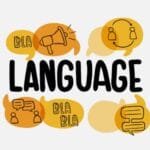In the short-paced international of healthcare, experts have to usually replace their talents to fulfill the dynamic needs of their sufferers. One vicinity of precise importance is emergency medication, in which the potential to respond swiftly and successfully can suggest the difference among existence and loss of life. Emergency medicine abilties publications are designed to empower healthcare companies with the understanding and skillability required to deal with essential situations. These are the most effective capabilities of healthcare experts, as well as enhance patient results.
The Importance of Emergency Medicine Skills
Emergency remedy entails the remedy of acute ailments or injuries that require instant medical interest. Professionals on this subject should be adept at diagnosing and handling a huge variety of clinical emergencies, from heart assaults and strokes to disturbing accidents and respiratory disasters. The unpredictable nature of emergencies needs an excessive stage of competence and confidence from healthcare companies.
Emergency medicine skills courses offer comprehensive training that covers the critical elements of emergency care. These publications are designed to decorate the capability of healthcare specialists to speedy verify and stabilize patients, administer suitable treatments, and make important decisions beneath stress. By taking part in these guides, healthcare companies can stay abreast of the ultra-modern improvements in emergency medicinal drugs and ensure they’re prepared to deliver the best trendy care.
Key Components of Emergency Medicine Skills Courses
Emergency medicine skills courses encompass a broad range of topics, each aimed at equipping healthcare professionals with the necessary tools to handle emergencies effectively. Some of the key components include:
Basic Life Support (BLS) and Advanced Cardiac Life Support (ACLS)
BLS and ACLS are fundamental aspects of emergency medicine. BLS training focuses on immediate care for patients experiencing cardiac arrest, respiratory distress, or airway obstruction. It includes CPR, the use of automated external defibrillators (AEDs), and basic airway management. ACLS builds on BLS skills, incorporating advanced techniques such as intubation, intravenous (IV) access, and the administration of medications.
Trauma Management
Trauma management is a critical component of emergency medicine. Training in this area covers the assessment and treatment of traumatic injuries, including fractures, burns, and blunt or penetrating injuries. Healthcare professionals learn to perform procedures such as wound care, splinting, and hemorrhage control. Advanced trauma life support (ATLS) courses provide in-depth training on managing severe trauma cases, emphasizing the importance of a systematic approach to patient care.
Pediatric Emergency Care
Children present unique challenges in emergency situations due to their anatomical and physiological differences from adults. Pediatric emergency care courses focus on the specific needs of this patient population. Healthcare professionals learn to recognize and manage common pediatric emergencies, including respiratory distress, seizures, and trauma. These courses also cover techniques for pediatric resuscitation and stabilization.
Central Line Training
Central line training is a specialized component of emergency medicine skills courses. Central venous catheters, commonly known as central lines, are used to administer medications, fluids, and blood products, as well as to monitor central venous pressure. The placement of central lines requires precise technique and knowledge to avoid complications such as infections, pneumothorax, or arterial puncture.
Courses provide healthcare professionals with hands-on experience in inserting and managing central lines. Participants learn to identify appropriate insertion sites, maintain sterility during the procedure, and recognize and manage potential complications. Mastery of central line placement is crucial for professionals working in emergency departments and intensive care units, where rapid and reliable vascular access can be lifesaving.
Airway Management
Effective airway management is vital in emergency medicine. Courses in this area teach healthcare professionals how to assess and secure a patient’s airway, particularly in cases of respiratory distress or failure. Techniques such as endotracheal intubation, the use of supraglottic airway devices, and surgical airway procedures are covered. Proper airway management ensures that patients receive adequate oxygenation and ventilation, reducing the risk of hypoxia and subsequent complications.
Shock and Sepsis Management
Shock and sepsis are life-threatening conditions that require immediate intervention. Training in shock and sepsis management equips healthcare professionals with the skills to identify early signs of these conditions and implement appropriate treatments. Courses cover fluid resuscitation, vasopressor administration, and antibiotic therapy, as well as the monitoring and support of organ function. Timely and effective management of shock and sepsis significantly improves patient outcomes.
Benefits of Emergency Medicine Skills Courses
The advantages of emergency remedy talents guides make bigger beyond individual healthcare experts to the broader healthcare device and affected person population. Some of the important thing benefits include:
Enhanced Clinical Competence
Emergency medication abilities guides offer healthcare specialists with the knowledge and practical enjoyment needed to excel in emergency care. Enhanced clinical competence interprets to stepped forward affected person checks, more accurate diagnoses, and greater effective remedies. Healthcare vendors who go through this schooling are better geared up to deal with an extensive range of emergencies, mainly to higher quality care and higher affected person outcomes.
Increased Confidence
Confidence is vital when coping with medical emergencies. Healthcare experts who’ve completed emergency medicine capabilities publications are more confident in their abilities to manage essential situations. This confidence permits them to stay calm and composed beneath strain, making rapid and correct choices that may keep lives. Increased confidence also reduces tension and pressure, contributing to overall task pleasure and properly-being.
Improved Team Dynamics
Effective emergency care regularly entails collaboration among a couple of healthcare providers. Emergency medicinal drug talents courses emphasize the importance of teamwork and communique in excessive-pressure situations. By education together, healthcare experts increase a shared knowledge of protocols and methods, improving coordination and performance during emergencies. Enhanced team dynamics cause smoother and extra powerful affected person care.
Better Patient Outcomes
The ultimate goal of emergency medication talents courses is to improve affected person results. By equipping healthcare specialists with superior abilities and information, those publications make certain that patients get hold of timely and appropriate care. Improved affected person assessments, faster interventions, and effective treatments all make contributions to better survival prices and recuperation consequences. Patients enjoy the information of nicely-trained healthcare companies who can address their wishes unexpectedly and accurately.
Adaptability to Evolving Medical Practices
Medicine is a continuously evolving field, with new techniques, technologies, and remedies rising often. Emergency medicinal drug abilities guides maintain healthcare experts updated with trendy improvements and nice practices. This adaptability ensures that vendors are organized to implement new approaches and technology in their practice, maintaining excessive standards of care and improving affected person consequences.
Conclusion
Emergency remedy talents courses play a vital function in empowering healthcare professionals to supply excellent care in critical conditions. These courses provide comprehensive education in important areas along with fundamental and advanced life assist, trauma management, pediatric emergency care, relevant line placement, airway control, and shock and sepsis control. The blessings of these courses are always-reaching, enhancing clinical competence, growing self belief, enhancing group dynamics, and in the long run leading to better patient outcomes.
In an ever-changing healthcare panorama, non-stop education and talent development are critical for maintaining excellence in patient care. Emergency remedy abilities guides offer healthcare specialists the opportunity to live contemporary with today’s advancements and refine their competencies to manipulate emergencies effectively. By making an investment in those publications, healthcare vendors can make certain they’re nicely-prepared to stand any mission and provide the very best stage of care to their sufferers.
Also read about: Car Accident Injuries That Also Cause Emotional Turmoil







